In discussing implication logic and first duties, Wikipedia on ID came up yet again. The lead’s manifest failure to be responsibly objective, descending into slander from the outset, speaks volumes:
Intelligent design (ID) is a pseudoscientific argument for the existence of God, presented by its proponents as “an evidence-based scientific theory about life’s origins”.[1][2][3][4][5] Proponents claim that “certain features of the universe and of living things are best explained by an intelligent cause, not an undirected process such as natural selection.”[6] ID is a form of creationism that lacks empirical support and offers no testable or tenable hypotheses, and is therefore not science.[7][8][9] The leading proponents of ID are associated with the Discovery Institute, a Christian, politically conservative think tank based in the United States.[n 1]
This is wrong on many levels, presenting a mischaracterisation that is so striking that it practically demands analysis on confession by projection to the despised other as a way to attempt to relieve cognitive dissonance. From that perspective, we can readily see (and with some warrant on history) that a priori, ideologically driven evolutionary materialism dresses up an attack on God’s existence in the lab coat of science.
The hot retort, of course, would be that Evolution is established Big-S Science, or even that it is Big-F Fact. To which, the answer is first, that no explanation anchored on abductive inference to best explanation of facts of observation can be a fact in itself so long as the facts cannot be shown to full-bore imply the explanation. That is, Scientific Theories, from a strictly deductive perspective, commit affirming the consequent, a notorious fallacy of implication logic. But in fact, all that can be justly claimed per inductive inference to the best explanation, is that by some set of criteria of comparison, the “best” factually supported alternative explanation on the table currently is Theory X. Further to which, the issue of how criteria are chosen lurks.
Where, too, the pessimistic induction hovers, ghost-like (and often studiously ignored). Namely, there is a sufficient track record of major scientific theories that had to be replaced or revised drastically or were exposed as limiting case on further observations and analysis, that we cannot be morally certain that a given Theory X is Big-T True. We can be far more certain that so far, it is reliable in predicting and coherently explaining observed facts as that can be directly tested. The phrase, “so far,” is then a huge qualifier.
Such means, too, that the sense in which theories can be said to be knowledge, is a soft form, weak sense. That is, roughly: factually supported, responsibly warranted, credibly true or at least reliable-so-far belief, but subject to change on further observation and analysis. And, if ideological interference is a factor (as obviously obtains here), even that might be too generous.
ID, of course, contends that
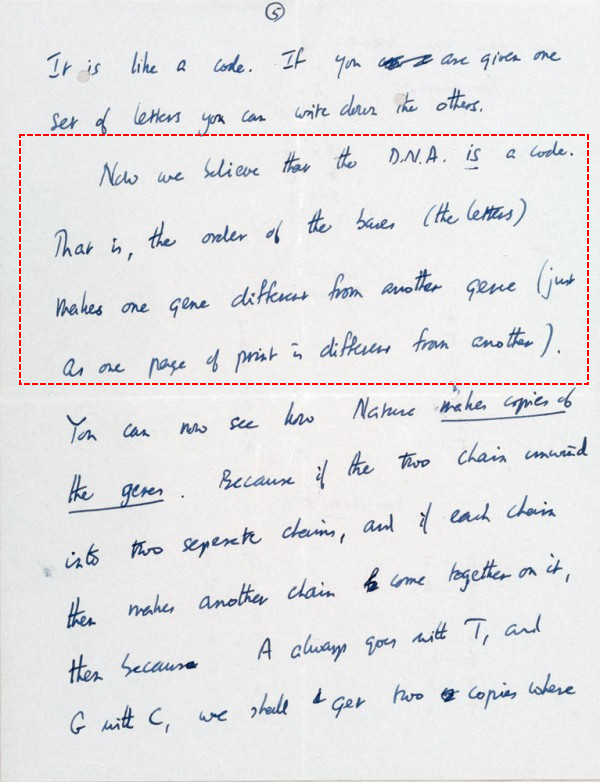
a: insofar as evolutionary theories rise beyond micro-level changes and adaptations [often by breaking existing functions],
b: there is a serious want of observationally anchored warrant for the claim that mechanisms of blind chance and/or mechanical necessity can and do account adequately for
c: the functionally specific, complex organisation and/or associated information [FSCO/I] beyond 500 – 1000 bits in the world of life, with
d: particular reference to origin of life, origin of multicellular life, origin of major body plans [cf. Cambrian Explosion], origin of man and of the human mind; where instead
e: intelligently directed configuration — i.e. design — is massively and generally readily observed . . . trillions of cases directly seen, no directly observed exceptions . . . as an adequate cause of such FSCO/I (and related phenomena such as fine tuning, irreducible complexity, language, codes and algorithms, etc), thus warranting
________________________________________________________________
f: the inference that intelligent design on FSCO/I etc as reliable signs best explains origins of life, multicellular life, body plans, man and even the observed fine tuned cosmos which is peculiarly well-fitted to life as we see it.
Such is controversial, of course. But, scientific explanations of the unobservable origins of life and the cosmos are inevitably going to be of limited warrant and so, controversial.
Here, as a reminder to objectors, we may note on step by step synthesis of proteins based on the basic genetic code:
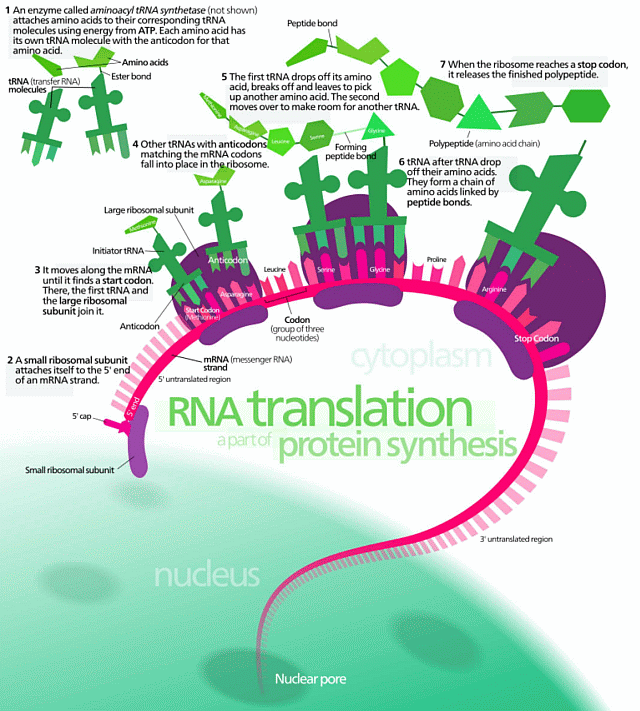
. . . in the context of the metabolic framework:
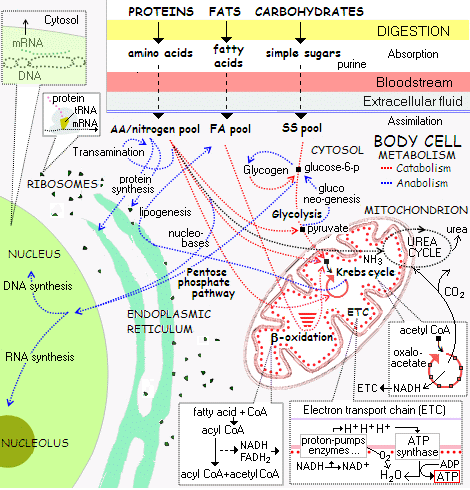
. . . noting the implied information system:
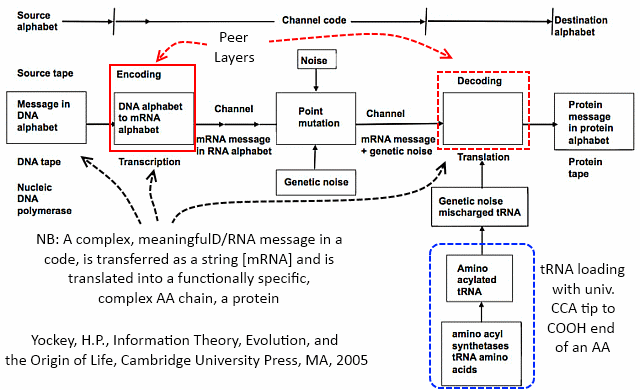
. . . where, the fine tuning context is also relevant:
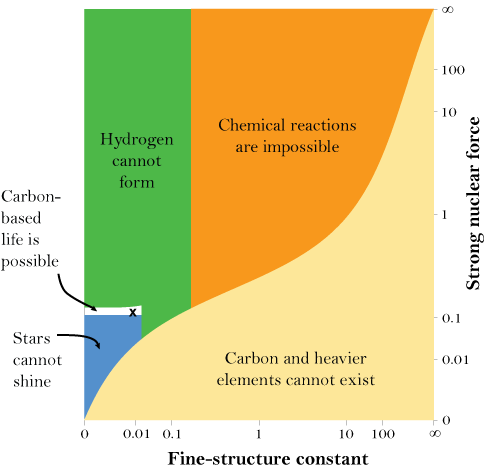
In that light, we may further correct Wikipedia:
[30:] <<1: Science/pseudoscience is generally not a helpful terminology as it tends to pivot on ideology and a priori materialistic commitment [often thinly veiled as a mere methodical constraint] rather than how empirically based inductive inferences are warranted.
2: In fact, there is no one size fits all and only Science, scientific method. That is, there is no unique method specific to the conventionally labelled sciences and beyond which there is an ugly gulch on the other side of which lie inferior grade studies.
3: That is, responsible empirically grounded, inductive methods do exist, and are applicable to the sciences, but are equally applicable in other fields of responsible investigation, even as the methods — note the plural — used in the lab and the field for the conventionally labelled sciences do not include elements that uniquely tie these sciences together.
4: Lab-based investigations [cf much of physics and chemistry], observational studies [starting with the root science, Astronomy], field studies [e.g. geology], simulation studies, etc overlap into other domains of practice and do not extend across the full span of the different sciences. Historical-forensic methods are even a part of science, starting with the testimony implicit in lab or observatory notebooks.
5: Mathematics, handmaiden of the sciences, is in the main, not an inductive, experimental or observational investigation. That is, the structure of warrant pivots on creating axiomatic systems and articulating a network of theorems from such. Of course, there are explorations, conjectures, bodies of lore that have not been systematised etc. And yet, core Mathematical findings are more strongly established than scientific theories.
6: It can thus be readily seen that there is no hard and fast border — demarcation line/criterion — between science and alleged pseudo-science. Error and fraud occur within science, some scientific findings are better warranted than others, responsible methods used in sciences are not unique to the sciences.
7: Wikipedia’s hostile tone from its opening words reflect ideological hostility not sober minded analysis and balance.
8: ID is not at root a theory on life’s origins, though that is a major application. The core issue — which even Wikipedia used to note — is the matter of inference to design as causal process on reliable, empirically grounded signs.
9: The remark on best explanation points to abductive, inductive reasoning on empirically observed, tested, reliable signs, but of course that import is suppressed in haste to conflate with creationism, long since stigmatised as pseudoscience. This is irresponsible, accusatory rhetoric posing as established knowledge, i.e. the accusation of pseudo-science [literally, false knowledge] is confession by projection to the despised other.
10: As to the no-evidence claim, that is an outright lie. The evidence of FSCO/I and its reliably observed cause along with search challenge analysis are evidence. [–> We can safely add, that patently, humans, beavers etc do not and cannot exhaust the set of possible intelligent designers.] Elsewhere at Wikipedia, we can see the infinite monkeys challenge, as inadvertent testimony against ideological interest:
The infinite monkey theorem states that a monkey hitting keys at random on a typewriter keyboard for an infinite amount of time will almost surely type any given text, such as the complete works of William Shakespeare. In fact, the monkey would almost surely type every possible finite text an infinite number of times. However, the probability that monkeys filling the entire observable universe would type a single complete work, such as Shakespeare’s Hamlet, is so tiny that the chance of it occurring during a period of time hundreds of thousands of orders of magnitude longer than the age of the universe is extremely low (but technically not zero).
In this context, “almost surely” is a mathematical term with a precise meaning, and the “monkey” is not an actual monkey, but a metaphor for an abstract device that produces an endless random sequence of letters and symbols. One of the earliest instances of the use of the “monkey metaphor” is that of French mathematician Émile Borel in 1913,[1] but the first instance may have been even earlier . . . . [buried deep therein, we see:] The theorem concerns a thought experiment which cannot be fully carried out in practice, since it is predicted to require prohibitive amounts of time and resources. Nonetheless, it has inspired efforts in finite random text generation.
One computer program run by Dan Oliver of Scottsdale, Arizona, according to an article in The New Yorker, came up with a result on 4 August 2004: After the group had worked for 42,162,500,000 billion billion monkey-years, one of the “monkeys” typed, “VALENTINE. Cease toIdor:eFLP0FRjWK78aXzVOwm)-‘;8.t” The first 19 letters of this sequence can be found in “The Two Gentlemen of Verona”. Other teams have reproduced 18 characters from “Timon of Athens”, 17 from “Troilus and Cressida”, and 16 from “Richard II”.[26]
A website entitled The Monkey Shakespeare Simulator, launched on 1 July 2003, contained a Java applet that simulated a large population of monkeys typing randomly, with the stated intention of seeing how long it takes the virtual monkeys to produce a complete Shakespearean play from beginning to end. For example, it produced this partial line from Henry IV, Part 2, reporting that it took “2,737,850 million billion billion billion monkey-years” to reach 24 matching characters:
RUMOUR. Open your ears; 9r”5j5&?OWTY Z0d . . .
11: 24 ASCII characters involves 7 x 24 = 168 bits, a config space of 3.74 * 10^50, a FACTOR of about 10^100 short of the 3.27*10^150 configs for 500 bits. 1,000 bits implies 1.07*10^301 configs. In short, we here see how blind search is overwhelmed long before it can credibly discover a first shoreline of complex configuration based function. The cosmos scope search on available resources rounds down to negligible search.
12: Obviously, the second Wikipedia article reports an unacknowledged empirical test of the design inference, as we have pointed out here at UD for many years. In general, the generation of 500 bits of FSCO/I by genuine blind chance and/or mechanical necessity would shatter the core sign that is used to infer design as cause.
13: ID is eminently testable, has been tested many times on this central claim and it stands confident on its strength. We therefore find a second pivotal lie in the opening paragraph of the Wikipedia ID article.
14: The Discovery Institute, of course, is not a specifically Christian organisation, but rather a generally libertarian thinktank. There are fellows and leading figures who are Christian, and others who are not. So, we can readily see here a “right wing theocratic Christofascist” strawman caricature and smear.>>
Of course, the proverbial, basement-dwelling trolls who dominate the ideologically loaded parts of Wikipedia don’t care about such corrections, as they pay scant regard to duties to truth, right reason, warrant [and wider prudence], fairness etc and are confident that they can avoid accountability on tort given looseness of US defamation law. Unfortunately, that taints the work of many sincere people who have made many excellent, public spirited, open source contributions to Wikipedia. Perhaps, a more balanced curated model might one day fix the problem. Meanwhile, we take due notice of the poor quality of Wikipedia’s ideologically tainted articles on ID and many other topics. END